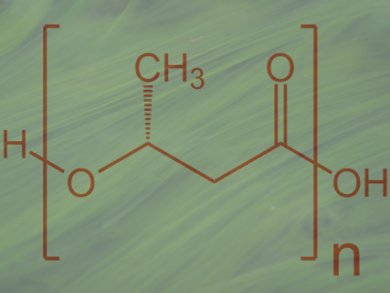Poly-3-hydroxybutyrate (PHB) is a thermoplastic polyester which occurs naturally in bacteria such as Ralstonia eutropha and Bacillus megaterium. Even though PHB is biodegradable and is not dependent on fossil resources, this bioplastic has been traditionally too expensive to produce to replace petroleum-based plastics.
Uwe Maier and colleagues, LOEWE-Centre Synmikro, Marburg, Germany, report an alternative method of producing PHB in microalgae. PHB is synthesized in bacteria from acetyl-CoA using the enzymes ß-ketothiolase, acetoacetyl-CoA reductase, and PHB synthase. The gene coding for these proteins were inserted into the microalgal diatom, Phaeodactylum tricornutum. This resulted in expression of the enzymes and synthesis of PHB in cytosolic granules. After only seven days, about 10 % of the dried weight of the diatoms was PHB.
The microalgae possessed high growth rates, were easy to handle, and did not need much more than light and water for cultivation.
- Microalgae as bioreactors for bioplastic production
F. Hempel, A. S. Bozarth, N. Lindenkamp, A. Klingl, S. Zauner, U. Linne, A. Steinbuchel, U. G. Maier,
Microbial Cell Factories 2011, 10(81).
DOI: 10.1186/1475-2859-10-81




